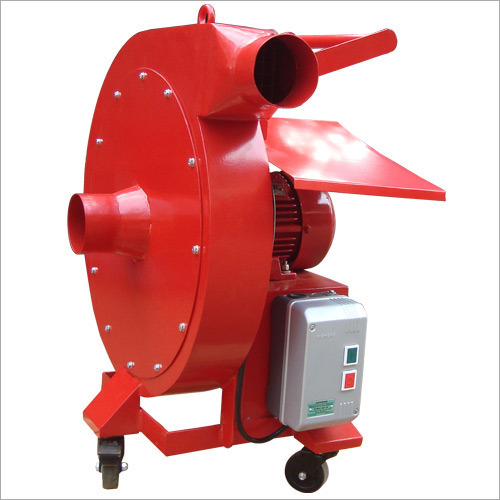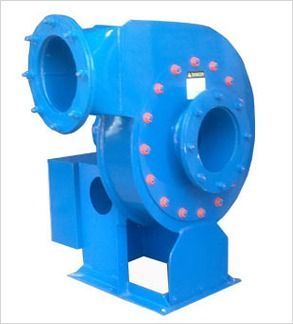- Home Page
- Company Profile
-
Our Products
- Dust Collector
- Dust Collection System
- Compact Dust Collector
- Portable Dust Collection Unit
- Multiple Bag Dust Collector
- Panel Saw Dust Collector
- Cartridge Dust Collector
- Portable Dust Collector
- Dust Collecting Equipment
- Woodworking Dust Collector
- Sanding Dust Collector
- Vertical Bag Dust Collector
- Dust Control Equipment
- Single Phase Vertical Bag Dust Collector
- Air Blower
- Fume Extractor
- Solder Fume Extractor
- Portable Fume Extractor
- Portable Fume Extraction Unit
- Laser Fume Extractor
- Soldering Fume Extractor
- Portable Fume Extractor With Flexible Hose
- Portable Welding Fume Extractor With Suction Arm
- Smoke Extractor
- Welding Fume Extractor
- Mobile Fume Extractor
- Portable Welding Fume Extractor
- Portable Fume Extractor Unit
- Industrial Fume Extractor
- Centrifugal Fan
- Single Inlet Centrifugal Fan
- Centrifugal Duct Fan
- Inline Centrifugal Fans
- Centrifugal Air Fan
- PP Centrifugal Fan
- Centrifugal Belt Drive Fan
- Cabinet Centrifugal Fan
- Portable Centrifugal Fan
- Direct Drive Centrifugal Fan
- Electric Centrifugal Fan
- High Speed Centrifugal Fan
- DIDW Centrifugal Fan
- Belt Driven Centrifugal Fan
- High Pressure Centrifugal Fan
- Direct Drive Centrifugal Fans
- Axial Flow Fan
- Blower Fan
- Cooling Fans
- Man Coolers
- Exhaust Fan
- Centrifugal Blowers
- Curved Impeller
- Industrial Blowers
- Axial Fans
- Ventilation Fan
- Inline Cabinet Fan
- Bifurcated Fans
- Duct Fans
- Cabinet Inline Fan
- Degasser Blower
- Turbo Blowers
- Blower Wheel
- Air Pollution Control Device
- Smoke Filtration System
- Induced Draft Fan
- Suction Blower
- Dust Collector
- More Info.
- Contact Us
Portable Centrifugal Blower
15000 INR/Unit
Product Details:
- Pressure High Pressure
- Application Industrial
- Frequency (MHz) 50 Hertz (HZ)
- Power Source Electric Blower
- Color Red
- Warranty 1 Year
- Click to View more
X
Portable Centrifugal Blower Price And Quantity
- 15000 INR/Unit
- 1 Unit
Portable Centrifugal Blower Product Specifications
- Industrial
- 1 Year
- Red
- Electric Blower
- 50 Hertz (HZ)
- High Pressure
Portable Centrifugal Blower Trade Information
- 1000 Unit Per Month
- 7 Days
Product Description
A centrifugal blower, also known as a centrifugal fan, is a mechanical device that uses centrifugal force to increase the pressure of a gas or air stream. It is commonly used in HVAC systems, industrial ventilation, and other applications where a large volume of air needs to be moved or circulated.
The basic design of a centrifugal blower includes a motor, an impeller, and a housing. The impeller is typically a wheel with curved blades that rotate at high speed. As the impeller rotates, it draws air or gas into the center of the wheel and then flings it outward, increasing its velocity and creating a higher pressure in the process. The air or gas then exits the blower through a duct or opening in the housing.
Centrifugal blowers come in many different sizes and configurations, with different blade shapes, impeller diameters, and housing designs. They can be driven by electric motors, diesel engines, or other power sources, and can be used for a wide range of applications, from drying crops to ventilating factories. They are also often used in HVAC systems, where they help to circulate and filter air within a building.
Portable Centrifugal Blower Features:
Centrifugal blowers have several features that make them useful in a variety of applications. Some of the key features of centrifugal blowers include:
1. High airflow rate: Centrifugal blowers can move large volumes of air or gas, making them ideal for applications where a high airflow rate is required.
2. High pressure capabilities: Centrifugal blowers can generate high pressures, allowing them to overcome resistance in ducts and other systems.
3. Variable speed control: Many centrifugal blowers can be controlled using variable frequency drives (VFDs), allowing their speed to be adjusted to match the requirements of the application.
4. Energy efficiency: Centrifugal blowers are generally more energy-efficient than other types of blowers, such as axial fans, due to their higher pressure capabilities and ability to handle resistance in ducts.
5. Low noise level: Centrifugal blowers produce less noise than other types of blowers, making them suitable for applications where noise levels must be kept low.
6. Compact design: Centrifugal blowers are generally more compact than other types of blowers, allowing them to be installed in tight spaces.
7. Easy maintenance: Centrifugal blowers require less maintenance than other types of blowers, due to their simple design and low wear and tear on components.
Portable Centrifugal Blower Applications:
Centrifugal blowers have a wide range of applications across various industries. Some of the common applications of centrifugal blowers include:
1. HVAC systems: Centrifugal blowers are used in heating, ventilation, and air conditioning (HVAC) systems to circulate air and regulate temperature and humidity levels in buildings.
2. Industrial ventilation: Centrifugal blowers are used to exhaust fumes, dust, and other contaminants from industrial environments, including factories, warehouses, and chemical plants.
3. Dust and particle control: Centrifugal blowers are used in dust collection systems to remove dust and other airborne particles from industrial processes.
4. Drying and dehumidifying: Centrifugal blowers are used to dry crops, lumber, and other materials, as well as to reduce humidity levels in industrial and commercial spaces.
5. Material handling: Centrifugal blowers are used to transport granular materials, such as grains, powders, and pellets, in pneumatic conveying systems.
6. Combustion air supply: Centrifugal blowers are used to supply air to burners in industrial processes, such as boilers, furnaces, and incinerators.
7. Automotive industry: Centrifugal blowers are used in automotive engines to increase air flow, which improves engine performance.
Overall, centrifugal blowers are versatile machines that can be used in a wide range of applications where large volumes of air or gas need to be moved or circulated.
Frequently Asked Questions:
1. What is the difference between a centrifugal blower and an axial fan?
Ans: A centrifugal blower generates pressure by rotating an impeller, while an axial fan generates airflow by rotating a set of blades. Centrifugal blowers are better suited for high-pressure applications where resistance is present in the system, while axial fans are better suited for applications with low to medium pressures and high airflow rates.
2. How do I select the right centrifugal blower for my application?
Ans: The right centrifugal blower will depend on several factors, including the required airflow rate, pressure, and temperature, as well as the application and system requirements. It's important to work with a reputable supplier who can help you select the right blower for your needs.
3. Can a centrifugal blower be used for both ventilation and exhaust?
Ans: Yes, centrifugal blowers can be used for both ventilation and exhaust applications, depending on the design and configuration of the blower and the system requirements.
4. How do I maintain my centrifugal blower?
Ans: Centrifugal blowers require regular maintenance to ensure optimal performance and longevity. This may include cleaning the impeller and housing, checking for wear on bearings and other components, and replacing any worn or damaged parts as needed. It's important to follow the manufacturer's recommended maintenance schedule and to work with a qualified technician for any repairs or maintenance.
5. Can a centrifugal blower be used in hazardous environments?
Ans: Yes, centrifugal blowers can be designed and constructed to meet the requirements of hazardous environments, such as those with explosive or flammable gases. It's important to select a blower that meets the appropriate safety standards for your application.
Tell us about your requirement

Price:
Quantity
Select Unit
- 50
- 100
- 200
- 250
- 500
- 1000+
Additional detail
Mobile number
Email







 Send Inquiry
Send Inquiry Send SMS
Send SMS Call Me Free
Call Me Free
